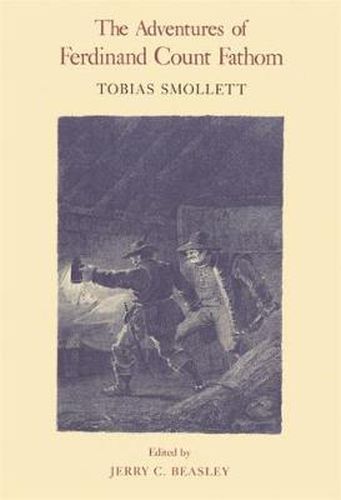Readings Newsletter
Become a Readings Member to make your shopping experience even easier.
Sign in or sign up for free!
You’re not far away from qualifying for FREE standard shipping within Australia
You’ve qualified for FREE standard shipping within Australia
The cart is loading…






The first novel by a major English writer that is devoted to a thoroughgoing portrait of villainy, The Adventures of Ferdinand Count Fathom chronicles the life of an aberrant criminal character. Filled with striking satiric thrusts at the legal, medical, and military establishments of mid-eighteenth-century Europe and England, the novel reveals Tobias Smollett’s capacities as a commentator on contemporary life.
First published in 1753, Ferdinand Count Fathom is an experimental work that explores the relations between history and fiction and introduces, for the first time in the English novel, episodes of Gothic melodrama. Too long neglected and never before available in a carefully prepared scholarly edition, Ferdinand Count Fathom may now be read, understood, and appreciated against the literary and historical background of the eighteenth-century world.
$9.00 standard shipping within Australia
FREE standard shipping within Australia for orders over $100.00
Express & International shipping calculated at checkout
The first novel by a major English writer that is devoted to a thoroughgoing portrait of villainy, The Adventures of Ferdinand Count Fathom chronicles the life of an aberrant criminal character. Filled with striking satiric thrusts at the legal, medical, and military establishments of mid-eighteenth-century Europe and England, the novel reveals Tobias Smollett’s capacities as a commentator on contemporary life.
First published in 1753, Ferdinand Count Fathom is an experimental work that explores the relations between history and fiction and introduces, for the first time in the English novel, episodes of Gothic melodrama. Too long neglected and never before available in a carefully prepared scholarly edition, Ferdinand Count Fathom may now be read, understood, and appreciated against the literary and historical background of the eighteenth-century world.